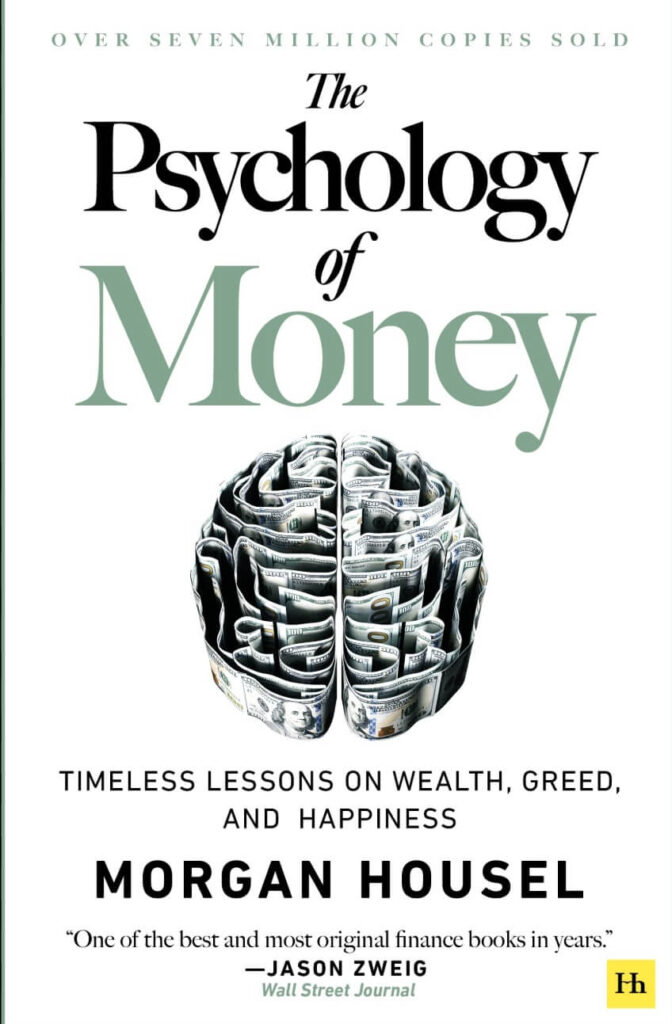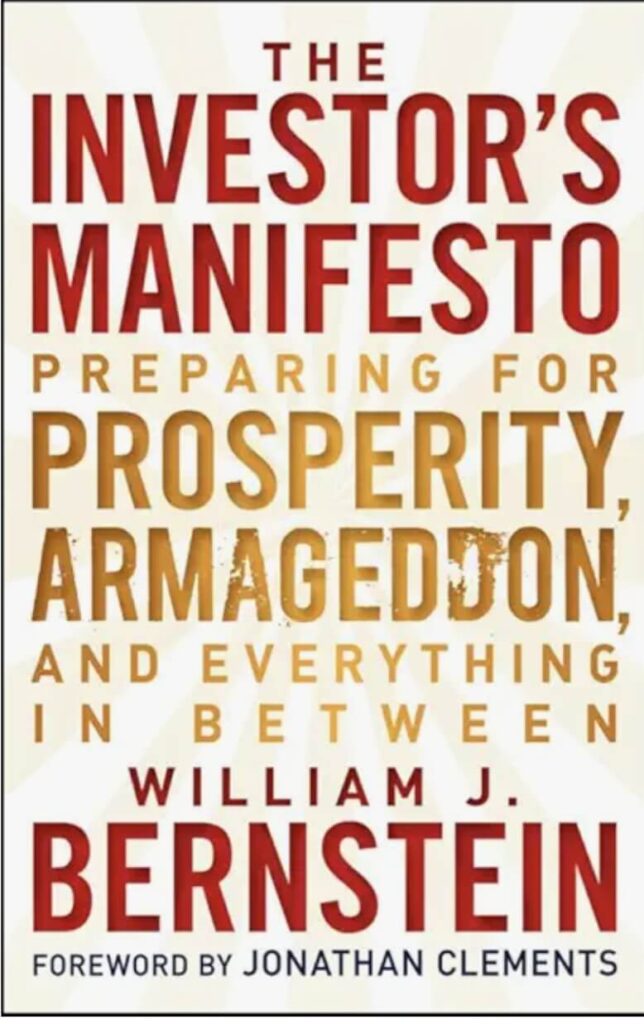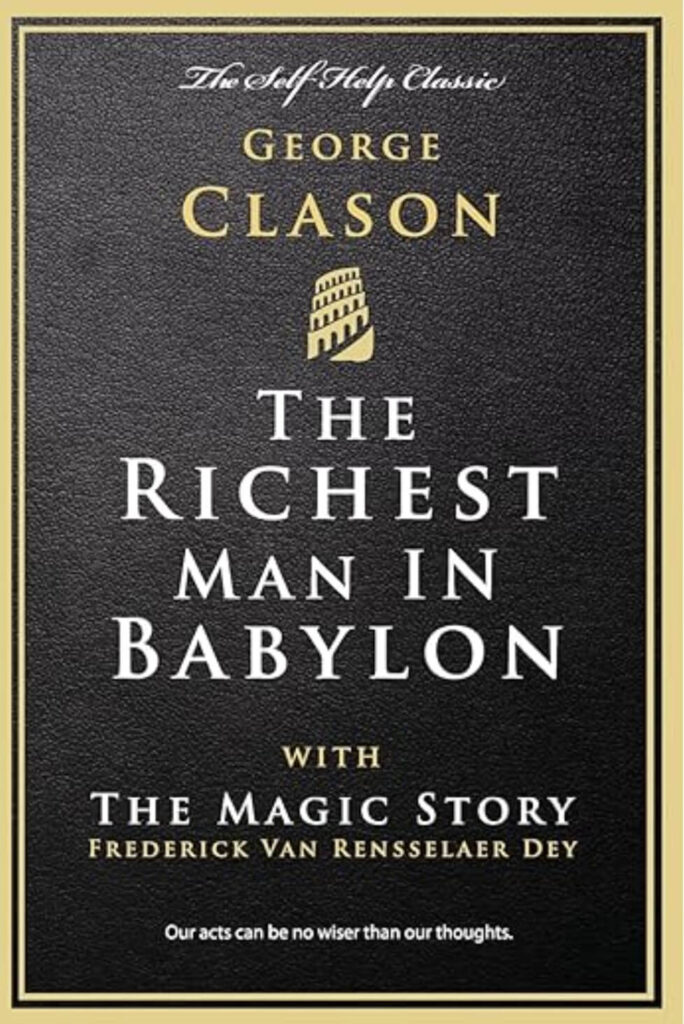Morgan Housel’s The Psychology of Money has garnered significant attention in the personal finance sphere since its release in 2020. The book delves into the psychological aspects of financial decision-making, emphasizing that behavior often trumps technical knowledge in achieving financial success. Barron’s
📘 Overview: Stories Over Statistics
Structured into 20 short chapters, Housel presents a series of anecdotes and reflections aimed at illustrating how emotions, biases, and individual experiences influence our financial choices. He challenges the notion that financial decisions are purely logical, suggesting instead that they are deeply personal and often irrational. junkybooks
💡 Key Themes That Stick
“Doing well with money has little to do with how smart you are and a lot to do with how you behave.”
This is the foundation of the book’s argument. Housel opens by pointing out that some of the most educated people in finance have made terrible personal money decisions, while others with no formal training have built generational wealth simply by being consistent and emotionally disciplined.
He stresses that intelligence ≠ financial success. Humility, patience, and self-awareness often matter more than any degree or model.
“Reasonable > Rational”
Housel emphasizes that people are not spreadsheets. We don’t make decisions purely based on logic; we make them based on our lived experiences, emotions, and fears. A decision that’s technically “irrational” (like paying off a low-interest mortgage early) might still be “reasonable” for your peace of mind.
It’s a welcome reminder that personal finance is personal, and optimization isn’t always the goal — sustainability is.
The Role of Luck and Risk
One of the most powerful chapters is about how much luck plays into financial success — and how unwilling we are to admit it. Housel contrasts Bill Gates (who attended one of the only U.S. high schools with a computer in the 1970s) with a brilliant classmate who ended up in prison.
The takeaway? Don’t idolize outliers. Copying Warren Buffett’s investments won’t make you Warren Buffett. Instead, design a strategy that can survive bad luck as much as it can thrive on good luck.
👍 What the Book Gets Right
✅ It’s Deeply Relatable
Perhaps the biggest strength of The Psychology of Money is that it speaks to readers across all levels of financial knowledge. Whether you’re new to budgeting or deep into FIRE (Financial Independence, Retire Early), Housel’s insights are grounded in shared human experiences: fear, greed, envy, uncertainty, regret.
You’ll likely recognize your own behavior — or that of your friends, parents, or partner — somewhere in these chapters.
✅ It Reframes Financial Success as a Life Skill
Instead of glorifying wealth, Housel emphasizes financial independence, peace of mind, and avoiding regret. He reminds us that the goal of money is not to win, but to be able to live life on your own terms. In a culture obsessed with outperforming others, this message feels almost revolutionary.
✅ It Encourages Long-Term Thinking
Like Jeremy Siegel in Stocks for the Long Run or Jack Bogle in The Little Book of Common Sense Investing, Housel champions the power of time. He writes:
“The most powerful way to grow your money is learning to be patient.”
No flashy tricks. No timing the market. Just survive, stick with it, and let compounding do the heavy lifting.
👎 Where It Falls Short
❌ Light on Depth
For all its charm and readability, The Psychology of Money is not a particularly deep book. Most chapters are 3–5 pages long, and many of the lessons — while insightful — are not explored with much nuance. Readers expecting detailed case studies or scientific backing may feel underwhelmed.
In fact, several Amazon reviewers mentioned that the book “repeats the same point over and over” or feels like “20 blog posts stitched together.” While this makes the book digestible, it also limits its staying power for more advanced readers.
❌ Not Much Practical Advice
You won’t walk away from this book with a clear action plan. There’s little guidance on how to create a budget, invest in retirement accounts, or deal with debt. The focus is almost entirely on mindset, not mechanics.
For some, this is refreshing. For others, especially those hoping for immediate, implementable tips, it might feel like a missed opportunity.
🗣️ Reader Feedback: Mixed Reactions
On platforms like Amazon and Goodreads, The Psychology of Money holds high ratings, with readers praising its readability and unique perspective. However, some express disappointment over the lack of depth and practical application. One reviewer noted, “It’s a good read for beginners, but seasoned investors might find it lacking in substance.”
🏁 Final Verdict: ★★★☆☆ (3/5)
The Psychology of Money offers a compelling look at the behavioral aspects of finance, making it a valuable read for those new to personal finance or interested in the psychological underpinnings of money management. However, readers seeking detailed strategies or in-depth analysis may find it wanting.




